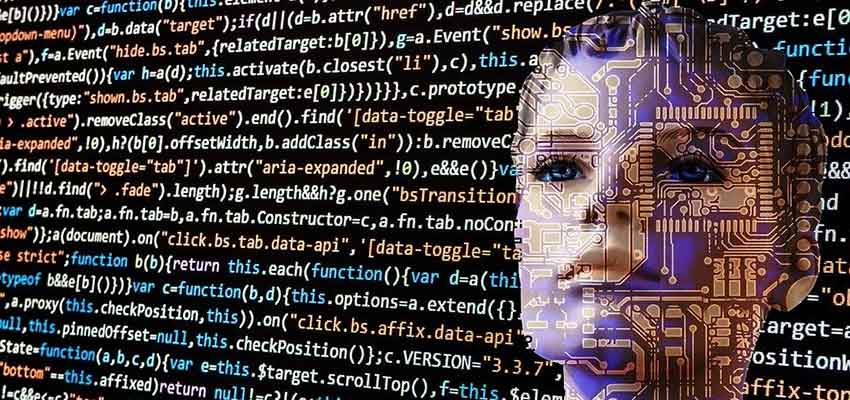Show:
How Useful Is AI To Your Company’s Recruitment Team
Since its arrival, artificial intelligence has been on the journey to eliminate and replace tedious and redundant jobs with optimized solutions to expedite the relevant processes. This helped the businesses to perform cost controlling and invest in a healthy AI system that would have a relatively lower maintenance cost.
Recently, the recruitment process has seen a significant rise in the use of AI with preset parameters that can help you gauge the efficiency of candidates. However, there are mixed reviews regarding the efficiency of the technology as the recruiting process requires a human to judge a candidate.

Let’s go over the role of AI in recruiting and understand its benefits to create a valid personal opinion.
Significance of AI in Recruiting
Before 2017, Artificial Intelligence was never included in the process of recruitment as the process was considered to have a necessary human involvement. However, since the integration of artificially intelligent systems in recruiting processes, companies have witnessed a series of positive results in the shape of promising candidates that perfectly fit the requirements of a job opening.
We are well aware of the dominance of artificial intelligence in automating mundane manual tasks that can be excessively taxing. Therefore, these tasks involved in the recruiting process can be managed by an AI system to allow the recruiter to channel its creative approaches into the interview process.
Benefits of using AI in Recruiting
Since artificial intelligence has been a big hit in every market it has been involved in, it is bound to have benefits when involved in the recruiting process.
- Automation of Redundant Tasks
The basic purpose of the involvement of AI in any process is to replace manual tasks. Since recruiting also comprises tedious and redundant manual tasks, they can be replaced by an artificially intelligent system.
It will act as a personal assistant for HR personnel to perform their regular duties while automating the daily mundane tasks.
- Cost-Effective Hiring Alternative
With the introduction of a new artificial intelligence system for a substantial cost, it might seem odd that it will lower your overall hiring costs. However, when looking at the big picture, you will understand the importance of the system when it funnels the best candidates that will improve your long-term ROI.
This is a classic example of why we shouldn’t hire an inexperienced yet relatively cheaper resource to manage our ROI while we can bear the cost of an expensive yet experienced professional who would provide long-term benefits.

- Diminishing the Concept of “Talent Waste”
Many HR professionals complain that they feel they wasted a talented individual just because their skills weren’t required at the time of hiring. However, they couldn’t reach back to them as the rejected resumes are discarded immediately.
With the involvement of a software-based recruitment process, you can let the AI system swift through old resumes and online job platforms to be on the lookout for that talent that was shoved away but is now required.
- Improved Quality of Your Applicants
The quality of your hired candidates purely depends on the type of applicants you’re attracting with the initial job listing. The absence of a WOW factor in your open positions and the company’s overall representation can be a major turn-off for quality candidates.
For this reason, you can use an artificially intelligent system to improve the effectiveness of your job descriptions. They should explicitly explain what you require for your open positions to showcase your straightforward approach which is appreciated by the majority of candidates.
- Optimized Recruiting Process
An interviewer needs to be at the top of their game to aptly analyze the efficiency of a candidate. This can only happen when the interviewer is fully prepared for the interview and has the will to close the candidate without letting them slip away to the competitor.
This is where the need for optimization of the recruitment process comes into play. With a machine analyzing the candidates coming in, you can easily prioritize your interviews and prepare your questions to engage the desired candidate. The AI system will use the data provided to it and display it in an appropriate pictorial representation to help you make your picks.
As the world is advancing, companies are continuously optimizing their regular tasks to become technologically relevant in the business space. Your company’s recruitment team will greatly benefit from this addition as it will make their recruitment process more efficient and primed. This is why this new idea to use AI for HR to expedite the recruiting process while ensuring that you made the right decision of hiring an individual allows the company to integrate relevant and long-term professionals into their system. Furthermore, the involvement of a software-based system will only improve the quality of the overall hiring process.
Is AI-based Recruiting Trustworthy Enough?
With the variety of benefits for a business to choose an artificially intelligent system for its recruiting process, it sounds fair to adopt it as a tool for assisting in your hiring process. However, do the benefits outweigh the potential disadvantages of an automated system? Let’s find out.
- Including Learned Bias in the Process
An artificial system is also designed by a human, right? So how can we claim for it to be completely unbiased? For this reason, an AI system can have the tendency to learn your patterns of rejecting previous candidates on the basis of age, race, and even gender. When factoring in these reasons, the system can filter out potential candidates just on the basis of these assumptions, which are accurately backed by data.
- Overlooking Potential Candidates
Since you plan to make the process purely based on data, you are likely to miss a potentially great candidate that has had a series of bad experiences in their past job experiences. Due to the prevalence of data in importance, you would never come across them irrespective of their actual dominance in their domain.
AI, in reality, is undeniably slowly taking over the world’s manual tasks one-by-one. Hence, its involvement in different activities is only going to increase. For companies integrating, it is essential to understand that although the use of technology has its benefits, it is important to factor in all your business needs before fully relying on an AI system. This could be done by following a hybrid approach of involving both a human and an AI to gauge the performance of the AI system and verify its efficiency.

 Return to Previous Page
Return to Previous Page








